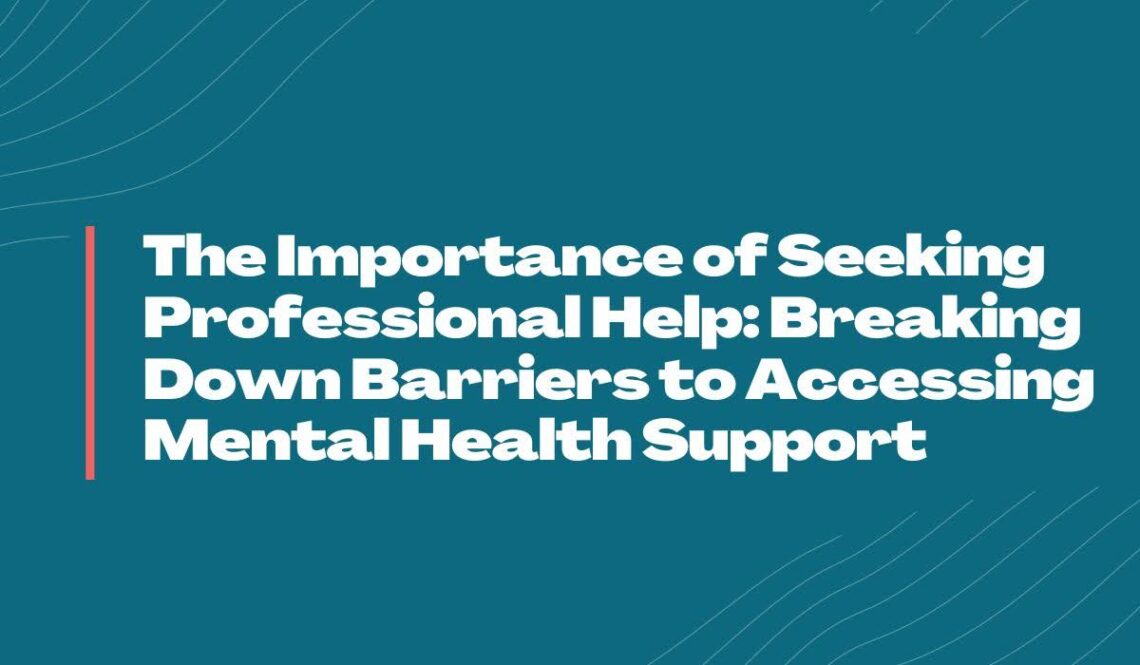
The Importance of Seeking Professional Help: Breaking Down Barriers to Accessing Mental Health Support
Seeking professional help for mental health concerns is a crucial step towards healing and well-being, yet it’s often hindered by barriers such as stigma, fear, and lack of accessibility. In this blog, we’ll delve into the significance of seeking professional support, why it’s essential to break down barriers, and how accessing mental health care can lead to transformative healing and growth.
First and foremost, it’s vital to recognise that mental health is just as important as physical health, and seeking professional help is a proactive step towards self-care and self-improvement. Just as we would consult a doctor for a physical ailment, seeking the expertise of a mental health professional can provide the support and guidance needed to address mental health challenges and thrive.
Moreover, professional help offers specialised knowledge and skills that can facilitate healing and recovery. Mental health professionals, such as therapists, counsellors, and psychiatrists, are trained to assess and treat a wide range of mental health issues, from anxiety and depression to trauma and addiction. They provide evidence-based interventions and support tailored to individual needs, helping clients navigate their struggles and develop coping strategies for long-term well-being.
Furthermore, seeking professional help can provide a safe and confidential space to explore and process difficult emotions and experiences. In therapy, clients are encouraged to express themselves openly and honestly, without fear of judgement or criticism. This therapeutic alliance fosters trust, empathy, and understanding, creating an environment conducive to healing and growth.
Despite the numerous benefits of professional help, barriers such as stigma, fear, and lack of accessibility often prevent individuals from seeking the support they need. Stigma surrounding mental health can lead to feelings of shame, embarrassment, and reluctance to seek help, perpetuating the cycle of silence and suffering. Fear of judgement or discrimination from others, as well as concerns about confidentiality and privacy, can further deter individuals from reaching out for support.
Moreover, the lack of accessible mental health services, particularly in underserved communities or rural areas, can pose a significant barrier to accessing professional help. Long wait times, limited availability of providers, and financial constraints can make it challenging for individuals to access the care they need, further exacerbating mental health disparities and inequities.
To break down barriers to accessing mental health support, it’s essential to challenge stigma, raise awareness, and promote education about mental health and well-being. Normalising conversations about mental health, sharing personal stories of recovery and resilience, and providing accurate information about mental health conditions can help reduce stigma and encourage help-seeking behaviour.
Additionally, increasing access to mental health services through teletherapy, online counselling platforms, and community-based initiatives can improve the availability and affordability of professional help for those in need. Offering sliding scale fees, pro bono services, and culturally competent care can further enhance accessibility and inclusivity in mental health care.
In conclusion, seeking professional help for mental health concerns is a courageous and proactive step towards healing and well-being. By breaking down barriers to accessing mental health support, challenging stigma, and increasing awareness and accessibility of services, we can empower individuals to seek the help they need and deserve. Remember, you are not alone, and there is hope and support available for those who reach out.



